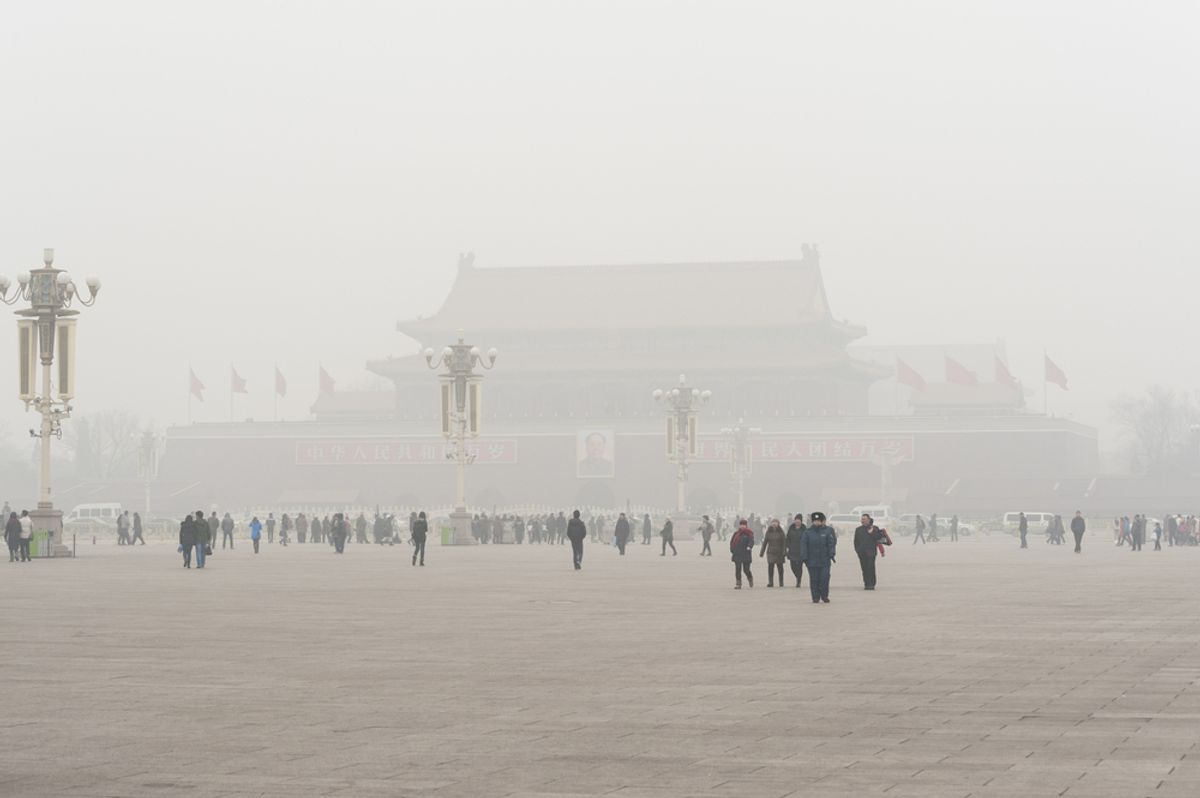Just living in China's heavily polluted cities constitutes a significant hazard, Japanese electronics giant Panasonic announced -- enough so that the company plans to compensate its workers sent overseas with a wage premium.
It may be the first time an international company has awarded hardship pay for air pollution, the AFP reports:
The move was part of a wider deal reached in Japan's annual labour talks, which saw major firms, including Panasonic and Toyota, agree to boost workers' salaries for the first time in years, amid concerns about an economic slowdown after a sales tax rise next month.
A Panasonic spokesman declined to give details about the premium, or say how many expatriate workers it employs in China, which has extensive trade and business links with Japan.
So-called hardship pay is not unusual for employees of foreign firms sent to work to China. But Panasonic is believed to be the first to announce a premium to compensate for polluted air.
A company document from the labour talks said: "As for the premium for expatriates to compensate for a different living environment, the company will have a special review for those sent to Chinese cities."
The Panasonic document specifically referenced PM2.5, the type of air pollutant most harmful to human health, and also puts a limit on levels of sulphur dioxide and nitrogen dioxide. In Beijing, levels of PM2.5 have been known to exceed the World Health Organization's safety limit by up to 16 times. And in other cities, where the problem is even worse, concentrations of PM2.5 exceed emergency levels for as much as a third of the year. Last fall, the World Health Organization officially ranked air pollution among the world's leading causes of cancer, calling it "the most important environmental carcinogen."
“That’s the first time I’ve heard any company be quite so brazen about it,” Robert Parkinson, head of Beijing-based recruiter RMG Selection, told the Financial Times of Panasonic's announcement. “It’s a bit like saying we know we are exposing you to something that could be life-threatening. We’re going to admit it and compensate you for it.”



Shares